Sonos Play:1 Review
Sonos Play:1 Review
The best wireless speaker in town?
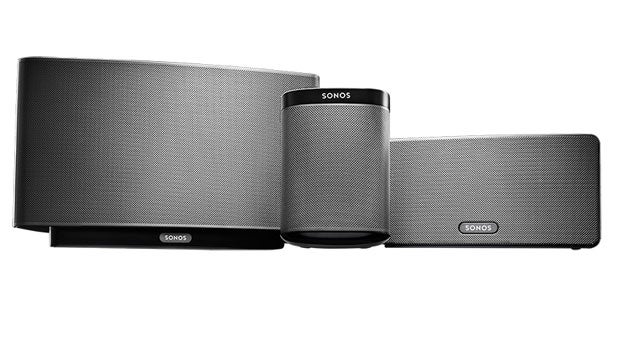
Verdict
Pros
- Small and convenient
- Great sound quality for size
- Good value
Cons
- No aux input
Key Specifications
- Review Price: £169.99
- 1x mid-range driver
- 1x tweeter
- Integrated Wi-Fi
- Wall-mountable
What is the Sonos Play:1?
The Sonos Play:1 is the most affordable speaker in the Sonos multi-room line-up. It costs £189, and is worth considering even if you want a single wireless speaker rather than a full multi-room setup. It’s that good.
Alarmingly powerful and rich sound from a box that fits on a bedside table makes this one of the strongest small speakers money can buy.
While you’re here, check out the freshly announced Sonos Beam smart soundbar, which features Amazon Alexa, Google Assistant and Apple Siri.
Related: Sonos One review
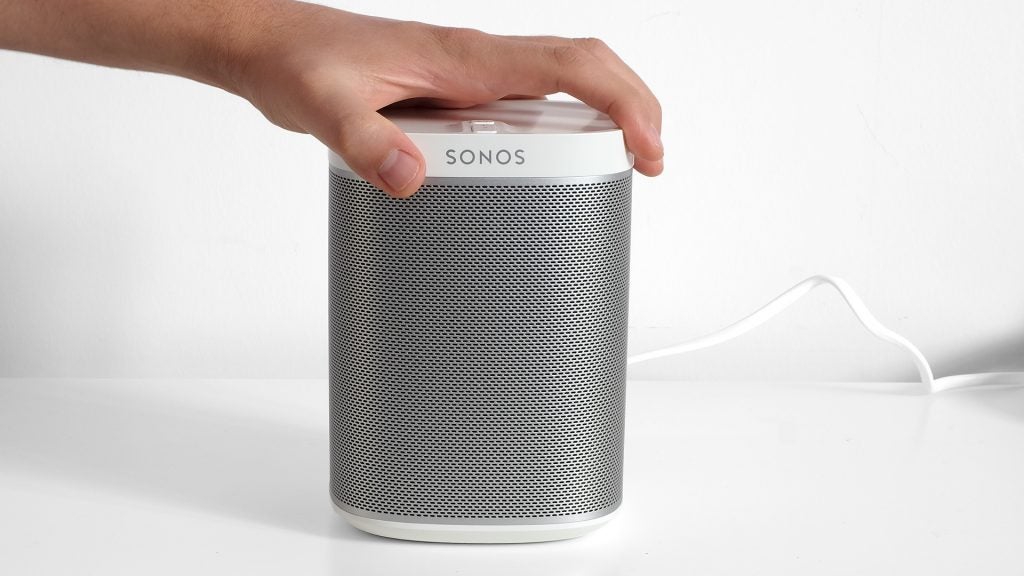
Sonos Play:1 – Design
The Sonos Play:1 is not like most other small wireless speakers. It doesn’t use Bluetooth, is not portable and won’t even take a 3.5mm plug to accept a non-wireless source.
Like other Sonos units, you’d better be ready to embrace wireless streaming before buying.
The Sonos Play:1 is easily the most accessible speaker Sonos has made, though. It’s the prettiest, the smallest and the cheapest.
However, it is as well-made as its bigger brothers. The sides of the Play:1 are covered by a single-piece metal grille that curves smoothly around its edges. Its top and bottom are plastic, but still look and feel great.
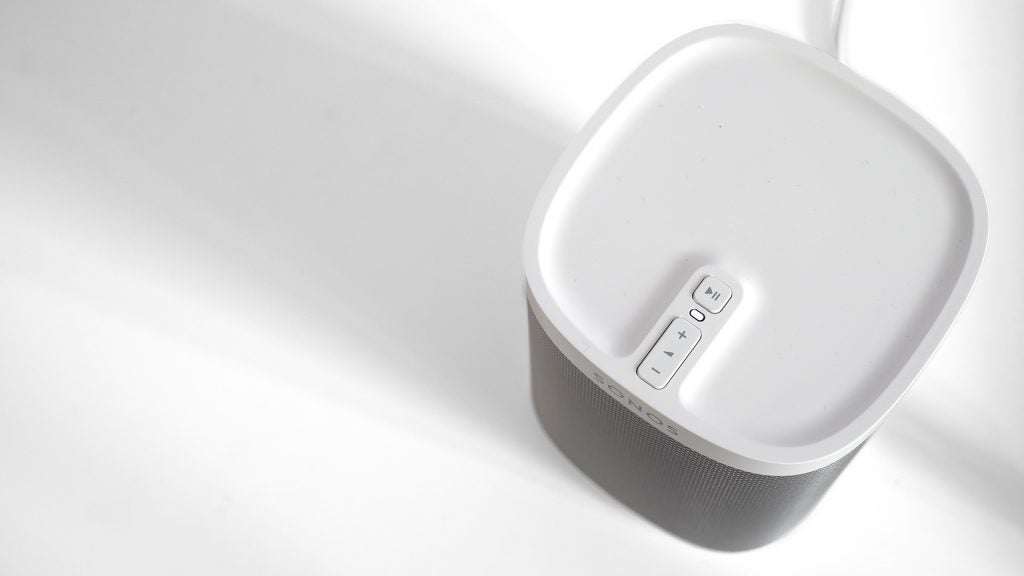
The Sonos Play:1 is 16cm tall, with a base that’s roughly a 12cm rounded-off square. You can now buy all sorts of stands for it, which attach to a thread on the back, but I still find its simple physical convenience a key draw. It fits onto a small table, a bookshelf or kitchen sideboard without taking up much room.
This is an almost alarmingly simple speaker, hardware-wise. It has a volume rocker and play/pause button on its top, and an Ethernet socket on its back. That’s it, aside from the power jack and wall-mounting socket.
If you’re not familiar with the Sonos system, here’s how it works: any music sent to the Sonos Play:1 is not streamed using AirPlay or Bluetooth, but Sonos’s own Wi-Fi-based software system. You access this through an iOS/Android app, or on your computer.
The Sonos system incorporates loads of streaming services including Spotify, Deezer, Amazon Music.
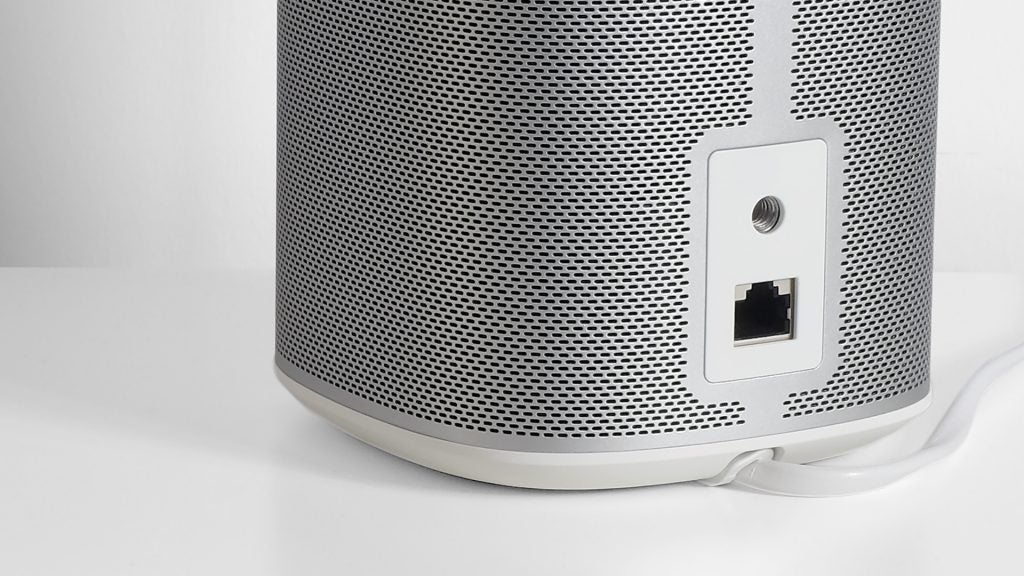
Sonos Play:1 – Setup
In the early days of the Sonos system you had to buy a bridge to connect your speakers to your home Wi-Fi. But now it’s much more like a standard wireless speaker.
On first firing up the app for iOS or Android, it should recognise the speaker almost immediately. You then simply select your home Wi-Fi network and type-in your password. That’s it.
If your Sonos runs old firmware, or if the app struggles to find your Play:1, you just need to plug it into your router using an Ethernet cable to get started. There’s such a cable in the box. Either way, setup takes just a minute or two.
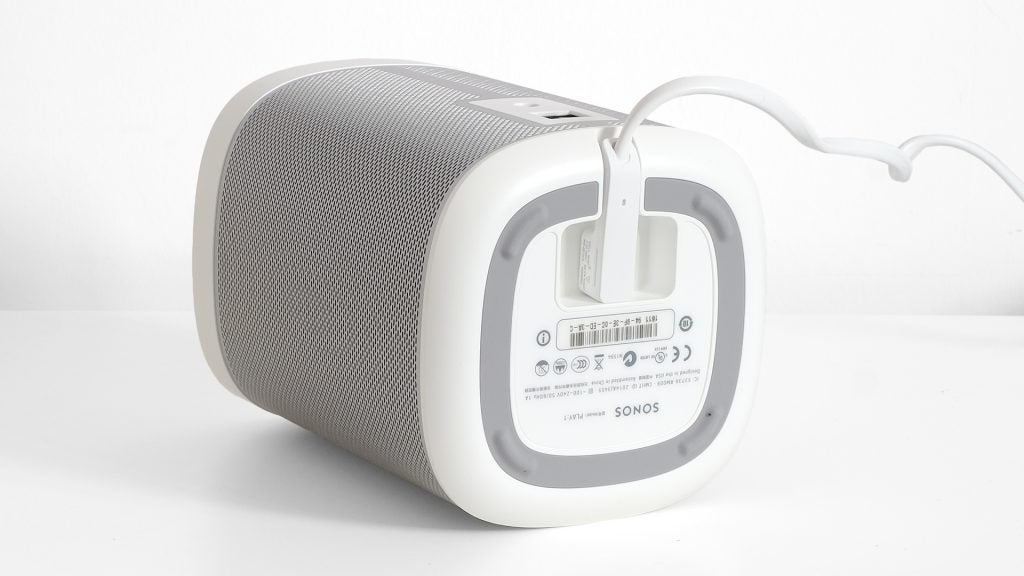
Sonos Play:1 – Interface and App
Sonos is also less closed-off than it used to be. Until 2016, all music selection for your Play:1 had to be done through the Sonos app.
This is an attractive and well-made app, but many find the restrictive Sonos approach annoying. It also has worse music discovery than the average streaming app. Spotify users can now stream directly from the Spotify app, though, as you would with a Bluetooth speaker.
It makes using Sonos feel much more natural, particularly if you, say, use Spotify on your phone on the way to work.
Not a Spotify user? You still have to use the Sonos app.
In the UK where I’m using the Play:1 you can use 49 services through the app. This includes most streamer favourites including Tidal, Google Play Music, Apple Music, Amazon Music and old favourites like 7Digital, Napster and Deezer.
Podcast fans may find their app of choice isn’t supported. Sonos’s solution is TuneIn Radio, the most popular internet radio app and also a good way to listen to podcasts. It comes ‘preinstalled’ in the Sonos app.
You can also set alarms using the app, although as there’s no snooze function you’d better be good at getting out of bed.
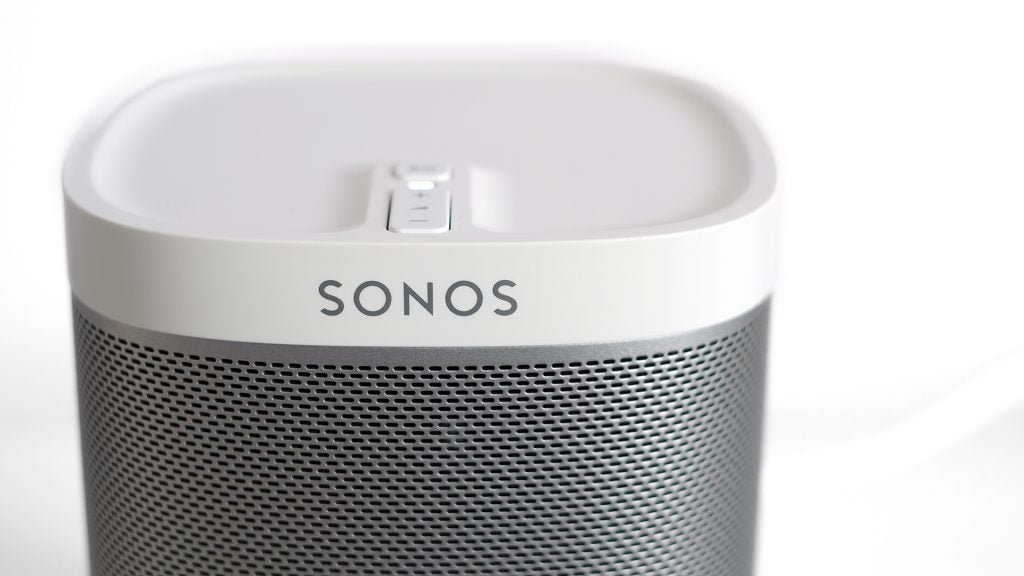
The other key role of the Sonos Play:1 is as surround speaker in a Sonos surround sound system. Two can be paired-up with a Sonos Playbar and, if you want the full effect, a Sonos SUB. However, a full 5.1 setup will cost you just under £1800.
One major missing feature in the Play:1, becoming more glaring by the month, is a full-array microphone. We’re starting to see more of these in wireless speakers that can integrate with Amazon Alexa, letting you simply ask for specific tunes. There’s no word of such a voice-controlled Sonos speaker. And as there’s no mic on the Play:1, no hope of an update either.
Sonos Play:1 – Sound Quality
On its own the Sonos Play:1 is an excellent small speaker, offering pretty much class-leading sound quality for a wireless speaker of this price and size.
Each Sonos Play:1 has two drivers, a mid-range/bass driver and a smaller tweeter. Traditional bookshelf speakers use the same arrangement. However, its main driver uses stronger-than-average magnets to allow the speaker cone to move back and forward further than normal.
It helps give the Sonos Play:1 excellent, rich and meaty sound for its size. Voicing is fairly neutral, but the depth and scale of the bass the speaker is able to produce is very impressive.
I’ve used the Sonos Play:1 on and off since it launched years ago. I’m impressed by the depth of the bass and its ability to fill rooms with ease every time I plug it back in.

It’s a very enjoyable listen, with enough finesse, a rich enough tone and more than enough punch to make you forget the size of the speaker you’re listening to. This little guy sounds unusually at home playing at high volumes, and I believe many people would be happy to use this as their main music source. It’s something to consider if the price of the excellent Play:5 is off-putting.
Treble is a little soft, without the piercing clarity you often get with a dedicated tweeter. However, I take this as a sign Sonos has done its best to work with the compromises of a relatively small speaker, to make it sound as big and satisfying as possible.
Others take a different approach. For example, the Riva Arena sounds a lot more detailed and refined than the Sonos Play:1 at low volumes. It has a more hifi-like timbre, and greater finesse.
However, as volume is increased the Sonos sound scales up much better. The Riva Arena starts to sound strained before the Play:1, and doesn’t have the same sense of scale. It can’t fill mid-size rooms anywhere near as well.
Any speaker the size of the Play:1 has to deal with a compromise or two. But Sonos has nailed it here.

Should I buy the Sonos Play:1?
The Sonos Play:1 is a great little speaker. We have no hesitation in recommending the Play:1 if you find the Play:5 too pricey. It works just like any other Sonos Play-series speaker, and offers excellent sound for both the size and price.
Those who say Sonos is just for the rich can stop now.
However, if you’re going to listen at low volumes you might also want to consider the more refined, slightly more flexible Riva Arena.
Verdict
The Sonos Play:1 is the most accessible Sonos speaker. It offers all the convenience of its streaming brothers in a smaller, cheaper form.
If you’re looking for something more portable read Best Portable Speakers


